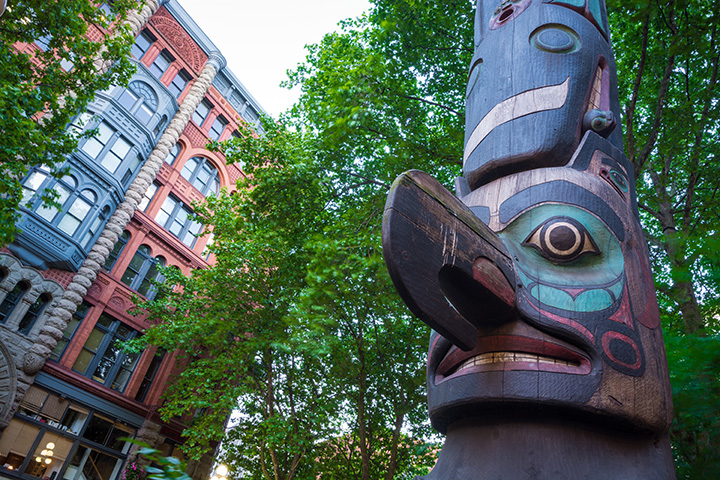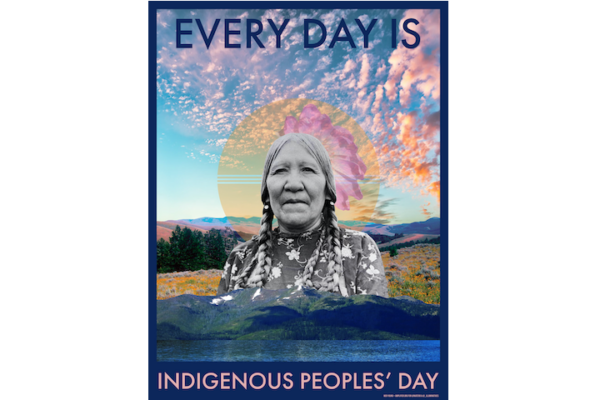Indigenous Peoples’ Day—A Time to Respect and Reflect
Today in Seattle, we observe Indigenous Peoples’ Day. In October 2014, when the City of Seattle first adopted Indigenous Peoples’ Day, it stated this day to be “…an opportunity to celebrate the thriving cultures and values of the Indigenous Peoples of our region” and to commit to “…continue its efforts to promote the well-being and growth of Seattle’s American Indian and Indigenous community.”
Every day is a good day to celebrate and appreciate the culture and values of our Indigenous neighbors and especially the Coast Salish peoples who first resided and stewarded the lands we know as Puget Sound.
Every day is a good day to celebrate and appreciate the culture and values of our Indigenous neighbors, and especially the Coast Salish peoples who first resided and stewarded the lands we know as Puget Sound. They include Duwamish, Muckleshoot, Puyallup, Tulalips, Snoqualmie and Suquamish. Every day we verbalize Coast Salish names and travel places that are culturally significant. Today is a reminder for us to do so consciously, with knowledge of and appreciation for the Coast Salish peoples. Indeed, the Duwamish, who continue to fight for federal recognition as a tribe, have identified and are protecting an area in West Seattle along the Duwamish River that once was a major village dating back to 600 A.D.
Increasing our historical knowledge and appreciation of culture is so important and more is required of us. The history of Indigenous peoples in the United States of America—states and territories—is one of genocide, colonialism and oppression from explicit and systematic racism. In the United States, including Puget Sound, our Indigenous brothers and sisters suffer from disproportionate rates of poverty, homelessness, and inequities in health, education, income and wealth.
As a social justice organization, and as individuals committed to racial equity, our actions must be in solidarity with our Indigenous communities.
It is necessary that we learn the history of Indigenous peoples and their current lived experiences so that we can better understand how we can take action. As a social justice organization, and as individuals committed to racial equity, our actions must be in solidarity with our Indigenous communities. And it must result in an acceleration of the long-overdue progress toward race reconciliation and reparations—for a just and equitable community where all feel that they belong, have opportunity and are thriving.
Additional resources:
Celebration events today.
Native-led and -founded organizations and individuals to support:
Real Rent calls on people who live and work in Seattle to make rent payments to the Duwamish Tribe. Though the city named for the Duwamish leader Chief Seattle thrives, the Tribe has yet to be justly compensated for their land, resources, and livelihood.
Chief Seattle Club (They are also celebrating 50 years since it was established this weekend).
Jeffrey Veregge an award-winning Native American Artist & Writer from the Port Gamble S’Klallam Tribe
Na`ah Illahee Fund’s Native Girls Code Program
Red Eagle Soaring – Native Youth Theatre/Arts – You can watch all their previous performances here.
Livestream Highlight Reel of Nawiishtunmi Conner of Chief Seattle Club and Impact of Covid-19.



Comments